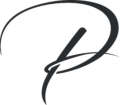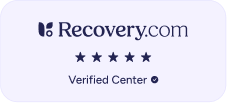At Profound Treatment, we are committed to helping those struggling with substance use disorders (SUD) and co-occurring disorders. Whether your drug addiction stems from illicit substance abuse, alcohol addiction, or prescription drug abuse, there is a treatment program for you. Moreover, we are proud to offer comprehensive, evidence-based treatment plans to support a wide range of challenges.
Our comprehensive, holistic approach ensures each client has access to treatment options like dual diagnosis treatment. In addition to addiction treatment, a dual diagnosis treatment center helps address co-occurring disorders like mental health conditions and polysubstance use. Thus, with prescription addiction treatment in Los Angeles, California, you can access levels of care tailored to your unique needs for long-term wellness.
Expert Care in a Healing Environment
Our experienced clinical team combines compassionate support with proven therapies to help you regain balance, clarity, and stability.
Our Prescription Addiction Treatment Experience
There is a common misconception that prescription drugs are harder to get addicted to because they are prescribed by clinicians. Unfortunately, many prescription drugs are just as potent as illicit drugs and have similar addictive qualities. Misinformation like this is part of the reason why prescription drug addiction is such a pervasive form of substance abuse.
The opioid epidemic and its prevalence of fentanyl highlight how misuse and drug abuse can occur without risk knowledge and protective measures. Despite the challenges of prescription addiction, treatment and recovery are possible. At Profound Treatment, we are dedicated to helping those struggling with SUD achieve sobriety and long-term wellness.
Evidence-Based Care for Prescription Drug Addiction
Our residential treatment program is based on evidence-based drug rehab care that meets you where you are. Meeting you where you are means having access to substance abuse treatment options that cater to your unique needs, situation, and preferences during the recovery process. Listed below are some of the evidence-based treatment services we offer for individualized treatment plans:
- Individual therapy
- Cognitive-behavioral therapy (CBT)
- Dialectical behavior therapy (DBT)
- Group therapy
- Family therapy
- Trauma therapy
- Somatic experiencing (SE)
- Psychodynamic therapy
- Medication-assisted treatment (MAT)
Why Choose Profound Treatment in Los Angeles
Our Philosophy of Healing
At the core of our work is a commitment to helping each client heal in mind, body, and spirit across all levels of care. When we say, “You are unique, and your treatment should be, too. Treat the whole person, not just the diagnosis,” it is more than a mission statement. Healing the whole person is interwoven into every aspect of addiction treatment programs, our clinicians and staff, and how we operate as a treatment center and member of the Los Angeles County community.
At Profound Treatment, we are deeply invested in the long-term recovery and wellness of every client and their loved ones. Let us provide a supportive and healing space where you or your loved one can build the tools you need to make a profound change in your life.
A Supportive Path Forward Starts Here
Whether you’re seeking help for yourself or a loved one, we provide a safe, structured environment where real change can begin.
Levels of Care for Prescription Drug Addiction
Successful treatment for prescription drug addiction may need to incorporate several components, including medical detoxification, inpatient treatment, behavioral health counseling, and aftercare services. At Profound Treatment, we offer all of these treatment services through our residential rehab programs. Additionally, we offer support beyond residential treatment to ensure you receive comprehensive support across all levels of care. Some of the ways we support our clients with other levels of care include:
- Referrals to lower levels of care following residential treatment
- Partial hospitalization program (PHP)
- Intensive outpatient program (IOP)
- Outpatient treatment
- Continuing care treatment services
- Aftercare planning
- Alumni program
- Sober living
- Referrals to health care services
- Primary health care providers
- Mental health care providers
When you first come to Profound Treatment, you may need to detox before you transition into an addiction treatment center program. Detoxification is the process of letting drugs and or alcohol leave your system under medical supervision. The detox process can be unpleasant as you may experience uncomfortable withdrawal symptoms. However, our medical care team will be with you every step of the way to make sure you are safe and as comfortable as possible.
If you are looking for prescription addiction treatment in Los Angeles, you have come to the right place. At Profound Treatment, we offer drug treatment programs for prescription drug addiction, ranging from inpatient rehab to drug detox programs to support a smooth transition from drug rehab or alcohol rehab to residential treatment.
Detoxification & Medical Support
At Profound Treatment, we take an evidence-based and holistic approach to our rehab center programs. In our Los Angeles detox treatment facilities, you will receive 24/7 onsite medical supervision and psychological support. Additionally, we will create addiction treatment plans following detox that integrate behavioral health care like CBT, DBT, support groups, and aftercare. Through our holistic approach, we aim to provide a foundation for relapse prevention through compassion, goal-setting, education, and community support.
Inpatient Treatment
After detox, you will enter our residential treatment program. You will live at our state-of-the-art treatment facilities, where you have access to 24/7 care. During your time in drug treatment, you can expect to work with counselors, therapists, and support groups to start doing the mental work that the recovery process requires. In therapy, your therapist may utilize techniques like CBT to address underlying issues and thought patterns that may have contributed to your addiction.
Outpatient & Aftercare Options
After your inpatient treatment is complete, you may be ready to move on to a less intensive step in the ongoing recovery process. Listed below are some of the elements of lower levels of care:
- Outpatient treatment
- You attend a treatment center for a few hours a day, but do not live there
- Aftercare program
- Allows you to live your normal life at home
- You can attend work and other responsibilities
- Remain connected to resources to continue your recovery journey
- Relapse prevention planning
- You might continue therapy a couple of nights a week, attend workshops, or join community-based support groups like Narcotics Anonymous (NA)
- Peer support groups
Continuing to utilize these resources after prescription addiction treatment in Los Angeles is vital to maintaining sobriety, wellness, and long-term recovery.
What We Treat
Common Prescription Drugs Misused
There are a variety of prescription drugs that have addictive properties. Some of the most commonly abused prescription drugs include:
- Opioids
- Fentanyl
- Oxycodone (Oxycontin®)
- Hydrocodone (Vicodin®)
- Tramadol
- Codeine
- Morphine
- Central nervous system (CNS) depressants
- Xanax
- Ativan
- Klonopin
- Sleeping Pills
- Valium
- Stimulants
- Adderall
- Ritalin
- Concerta
- Vyvanse
Prescription drug use can have serious medical consequences, such as increased emergency room visits, overdose deaths, and treatment admissions for prescription drug use disorders. Further, the prevalence of prescription drug addiction highlights the need and benefit of prescription addiction treatment in Los Angeles, California:
- 5.1 million people reported misusing prescription stimulants in the past year
- 9.3 million people reported misusing prescription opioids in the past 12 months
- 4.8 million people reported misusing benzodiazepines in the past 12 months
Compassionate Care for Lasting Recovery
Our team is here to guide you through every step of the healing process with personalized, evidence-based treatment designed for long-term success.
Treatment Modalities & Interventions
Successful treatment for prescription drug addiction may need to incorporate several components for well-being and long-term recovery. The two main categories of drug use disorder treatment are behavioral health treatments, such as cognitive-behavioral therapy, and medications. Behavioral health treatments help clients stop drug use by changing unhealthy patterns of thinking and behavior. CBT can be incorporated into several forms of therapy, including individual, family, or group therapy.
Additionally, addiction to prescription opioids can be treated with medications through MAT. Some of the most common medications used in MAT treatment programs include buprenorphine, methadone, and naltrexone. MAT drugs like naltrexone can prevent other opioids from affecting the brain, while buprenorphine and methadone relieve withdrawal symptoms and cravings. Each MAT medication, from naltrexone to Suboxone, supports clients in relapse prevention.
If you or a loved one is suffering from a prescription drug addiction, we can help. At Profound Treatment, we offer treatment programs for each step of the recovery process. Our clinicians will work with you to develop a unique treatment plan that best suits your needs, as no two cases are the same.
Holistic & Experiential Approaches
Some of the other holistic modalities we offer for addiction treatment and dual diagnosis include:
- Yoga
- Meditation
- Mindfulness practices
- Stress management
- Nutritional counseling
- Art and music therapy
- Outdoor activities, such as hiking
- Experiential and adventure therapy
Take the First Step Toward Recovery Today
You don’t have to navigate this journey alone. Reach out to learn more about our programs and discover the right next step for you.
When to Seek Help for Substance Use Disorder
Prescription drug abuse refers to using a medication that is intended for prescription use in a way that your doctor did not intend. This could mean anything from taking a friend’s prescription painkillers for a nagging backache or overusing your own prescribed medication to achieve a high. Even if you do not intend to get high, misusing prescription drugs is considered abuse and is often illegal.
Beyond its legal issues, prescription drug abuse can easily put you at risk of developing an addiction if continued. Addiction to prescription drugs happens when you become psychologically and chemically dependent on them. Drug addiction is a serious issue that can lead to negative effects on your mental and physical health and even result in death. Thus, understanding the signs of addiction is invaluable to treatment and recovery. The symptoms of prescription drug addiction vary depending on the drug being abused.
Listed below are some warning signs that you have SUD:
- Taking larger amounts of your prescription than what has been prescribed
- A desire or urge to use substances
- You cannot cut back on or manage your substance use
- Spending a lot of time obtaining or using substances
- Difficulty fulfilling responsibilities at work, school, or at home
- Relationships issues
- Withdrawing from your relationships and social activities
- Continuing substance abuse despite ongoing physical or psychological issues
- Developing tolerance
- Needing a higher dose to get relief
- Experiencing withdrawal symptoms when you stop using substances
- Stealing pills
- Doctor shopping
- Going to multiple doctors to get multiple prescriptions for the same medication
- Claiming to lose prescriptions
- Frequently needing early refills
- Drowsiness or confusion
- Extreme highs and lows in energy and mood
If you think you or a loved one may be addicted to prescription drugs, reach out to our experienced care team at Profound Treatment.
Early Intervention Matters
Medications like opioids, benzodiazepines, and stimulants, when misused, can lead to severe physical and mental health consequences. Opioid addiction, for instance, is often associated with a heightened risk of overdose, as these drugs depress the respiratory system, potentially leading to death. Benzodiazepine misuse can result in profound sedation, memory impairment, and dangerous withdrawal symptoms, including seizures. Whereas stimulants, such as those prescribed for attention-deficit/hyperactivity disorder (ADHD), can lead to cardiovascular issues, anxiety, and psychosis when abused. Long-term misuse of prescription drugs can also lead to chronic health problems, such as liver and kidney damage, cognitive decline, and increased vulnerability to other forms of substance abuse.
FAQs
Your program length is based on a careful evaluation of your specific needs. Typically, residential treatment can last anywhere from 30 to 90 days. However, some individuals may require up to 180 days, depending on their medical history and the severity of the addiction.


